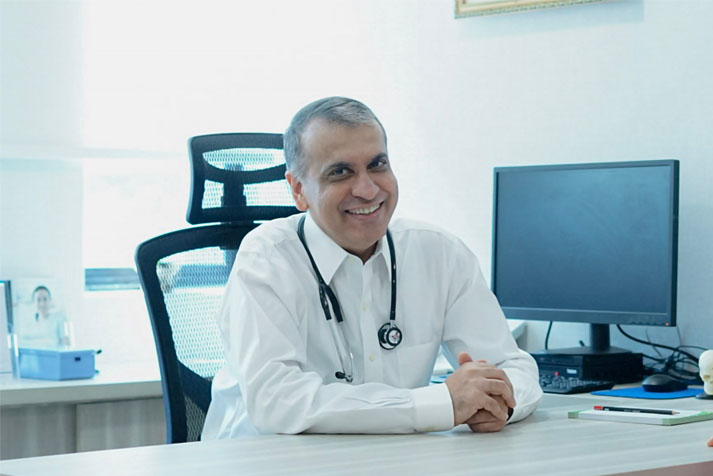Headaches

What are Headaches?
When you’re experiencing a severe headache, you might not be able to do all the things that you need to do in your everyday life. This can be stressful, on top of having a headache that is already painful and irritating.
Headaches are a feeling of discomfort or pain in the general face and head area. Broadly speaking, there are a few different kinds of headaches, like migraine headaches, cluster headaches, thunderclap headaches, and tension headaches. Regardless of the kind of headache you experience, it is possible to find relief. Let’s discuss headaches so that you can be more informed:
Headaches Symptoms
There are a variety of symptoms that you might experience when you have a headache. For example, you might feel like you’re sick to your stomach, and you might even vomit. However, you might just feel lightheaded and sensitive to any light that is around you.
Usually, you’re going to feel pain on either both or one side of your head. Your head might even hurt to the touch, and in some instances, you might feel like your eyes are watering and your eyelids are drooping.
Headaches Causes
The cause of your headache varies, depending on the kind of headache you’re experiencing. It might be caused by things like medicine, lack of water and food, or hormonal imbalances. However, a headache could be caused by things like a neck injury, eye problems, infections, and teeth issues.
Diagnoses of Headaches
Depending on the frequency and severity of your headache, you might find that it’s beneficial to have an official diagnosis. If you’re in pursuit of a diagnosis, a healthcare professional might decide to do an MRI, which is important if you’re having troubling symptoms. For example, if you’re having long headaches, sudden headaches, or new headaches, an MRI is important because it will determine if other, more severe issues are occurring. If none of these symptoms are happening, you will simply need a clinical assessment or a physical examination.
Different Types of Headaches
There are several different types of headaches. A primary headache refers to a headache that is the primary medical issue. So, if you get a headache that is a primary headache, your main medical issue is the headache itself.
A secondary headache, on the other hand, refers to a headache that is caused by another underlying medical issue. You might have a neck injury, teeth and gum issues that cause pain or meningitis. Usually, a headache is a primary headache, and several different kinds of headaches fall under this category.
Migraine Vs Headache
The difference between a migraine and a headache is that migraines are a neurological condition that affects both your nerve pathways and the chemicals in your brain. When there are changes in the way your brain is working, it will trigger a plethora of symptoms, like fatigue, pain, dizziness, and nausea. Simple headaches are not necessarily because of a difference in the way your brain functions.
Headaches Assessment (When to Worry)
Oftentimes there’s nothing to worry about when you have a headache. It will simply go away on its own. However, you need to begin to worry when you have a fever alongside your headache, when your headaches last for days, and when you’ve had a known head injury. There are other reasons to worry. If your headache gets worse after moving, or if it is long, abrupt, and painful, then it’s concerning. Assess yourself for these symptoms and seek help if you have them.
The majority of individuals who come in with headaches receive successful medical management with excellent response to treatment. A range of medications, both over-the-counter and prescription-based, are available for both immediate headaches and to proactively prevent severe episodes. Furthermore, there is the introduction of newer injection-based treatments, administered monthly or every 3-4 months, to improve care for patients experiencing headaches.
Learn more about the Supreme Vascular and Interventional Clinic’s assessment and headache management techniques in Singapore.
Additional Headache Management Techniques
For patients who don’t respond well to medication or experience significant side effects, there are additional options called interventional headache management techniques. These techniques are offered as an alternative and can be combined with medical treatment for better results.
Managing your headache is possible when you use medicine and newer injection-based treatments. These methods are proven to help those with headaches find relief.
Interventional Headache Management
Interventional headache management treatments for headaches involve procedures like nerve blocks (typically guided by ultrasound) and botox injections. They can reduce the severity of headaches. These treatments are usually performed in a clinic setting, and patients can go home right after the procedure. If you experience headaches, it can be a non-specific neurological symptom of brain aneurysm. What is a brain aneurysm headache? A brain aneurysm headache is a severe and sudden headache when patients experience the worst headache of their lives. Learn more about the different types of brain aneurysm headaches in our brain aneurysm resources.
If you’re thinking, ‘I need a headache clinic near me or a headache doctor near me,’ visit Supreme Vascular and Interventional Clinic. Our team and headache and brain aneurysm specialist, Dr. Manish Taneja, is committed to helping people in Singapore find relief from their headaches.
Whether you’re looking for a neurointerventional doctor or a neurointerventional clinic in Singapore, we are here to help. We encourage you to reach out for more information or to schedule a consultation with one of our specialists.
About the Supreme Vascular and Interventional Clinic
The Supreme Vascular and Interventional Clinic was started by Dr Manish Taneja. Dr Manish has been performing catheter angiograms and interventional procedures since May 1995. Over the last couple of decades, he has been pursuing full time dedicated vascular and interventional practice. He is one of the few dual trained and certified neurointerventional and peripheral vascular interventionists in practice in Singapore. As a neurointervention and vascular specialist, Dr. Manish Taneja has special interest treating brain aneurysms, stroke, thyroid nodule radiofrequency ablation, and venous diseases such as varicose veins.
The Supreme Vascular and Interventional Clinic, is your “go-to” facility for various conditions and pain management. Our state-of-the-art facilities and dedication to patient satisfaction ensure we help you best with a positive outcome.

Article & Pics courtesy of Dr. Manish Taneja, The Supreme Vascular and Interventional Clinic


